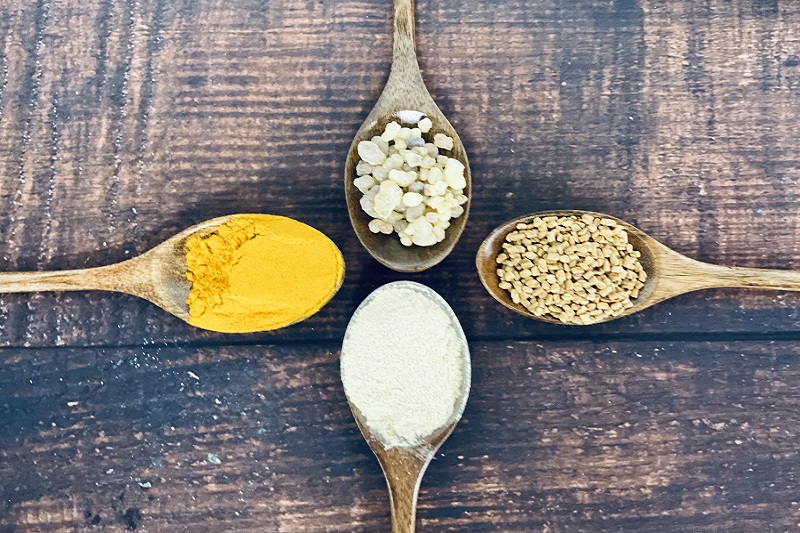

With the rise of new variants of coronavirus, the demand for herbal powders to increase the disease resistance has started to rise.
Kamal Bahadur Rajalwat, who has been distributing free packets of Gurjo (moonseed), a beneficial herb, and other herbs to increase the human body’s resistance since the coronavirus was found in Nepal, has intensified the campaign this time as well. He informed that about 60 powders including Gurjo are being distributed free of cost from 120 places in 40 districts at present.
When coronavirus was seen for the first time in Nepal, he was working as the Chief Tax Officer at the Inland Revenue Office, Lahan. Since then, he has started distributing free herbal powders all over the country. He has continued the distribution of herbal powder even after the office was shifted to Dhulikhel of Kavrapalanchok. Rajalwat, who started the campaign by distributing only Gurjo dust, had made and distributed 48 herbal powders during the second wave.
Demand for this specialty has grown significantly as a result of recent medicinal corporate scandals.
Since the start of the third wave of coronavirus, he has started making 56 types of herbal powders and distributing them for free. Demand for this specialty has grown significantly as a result of the rapid spread of the third wave. Onc people have used herbal powder once, they tend to repeatedly call for more.
Currently, several Nepali herbs such as Moonseed, Tulsi, Lemongrass, Fenugreek, Cinnamon, Harro, Barro, Amala, Clove, Cardamom, Chili, Turmeric, Neem, Parijat, Mango leaves, Pipal, Papaya leaves, Mint, Arjuna bark, Coriander, Brahmi, Khayar, Godavari and 56 other locally available powders are distributed.
Dr. Vanshdeep Sharma Kharel, an Ayurvedic doctor, says that the powder of gurjo (moonseed )is considered useful for boosting immune system in patients suffering from coronavirus, cold, cough, fever and flu. The distribution of this powder has been started by preparing it in consultation with Ayurveda doctors and experts. According to Rajalwat, the dust was prepared on the advice of Ayurveda doctor Dr. Rishi Ram Koirala, Executive Director of National Ayurveda Research and Training Center, Kirtipur, Dr. Ram Aadhar Yadav and other doctors.
The number of people consuming gurjo, a plant with Ayurvedic properties, has started increasing to prevent the spread of the disease. People tested positive for COVID-19 have also reported experiencing negative reports after starting to consume these products.
Executive Director Yadav said that the corona positives kept in isolation at the Ayurveda Research and Training Center in Kirtipur were given herbs including Gurjo. Yoga and meditation are also done in these centers in the morning and evening. He says that the patients get well after the treatment with this method.
He informed that moonseed saplings have been distributed to more than 300,000 people so far. The same number of tea and powder made from Gurjo have also been distributed free of cost. According to Rajalwat, about 500,000 people were provided free Gurjo tea at public events. Consumers have experiences that it relieves constipation, refreshes and even increases vitality. Dr. Kharel, an Ayurveda doctor, says that since it is a medicine of such importance, it is essential to plant a gurjo plant in a house as a medicine for many diseases and its regular consumption will increase the immunity of the human body.
He said that plants with medicinal properties like gurjo should be protected on the basis of the principle of Ayurveda ‘Yasya Deshasya Yo Janto: Tasya Taddhasam Hitam‘, meaning that all medicines are found in the very place where a person is born. Although there are many medicinal herbs and plants in the Nepali forests in the foothills of the Himalayas, they have not been put to good use. Campaigners have complained that some herbs and plants have been smuggled out and modern medicines made by mixing chemicals have entered Nepal.
Doctor Kharel says that emphasis should be laid on research to promote Ayurveda hospitals and dispensaries. Campaigners demand that the concerned bodies should pay attention as the Singha Durbar Vaidyakhana Development Committee, which produces Ayurvedic medicines, is also declining.